Past Fellows and Visiting Faculty
Spring 2002 Fellows
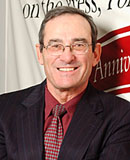 Eytan Gilboa is a professor of international communication and government at Bar-Ilan University in Israel. He has written extensively on international communication, American-Israeli relations, and the Arab-Israeli conflict. His best-known book is American Public Opinion toward Israel and the Arab-Israeli Conflict. His most recent book, an edited volume on Mass Communication and Conflicts, will be published soon. He is the recipient of The 2001 Best Article Award of the International Communication Association. Professor Gilboa has been a visiting professor at several distinguished American and European universities including Harvard, UCLA, Georgetown, and the American University in Washington, D.C. He frequently contributes articles to the print media and is a commentator on Israeli and world television and radio networks including CNN International, BBC World, and Fox News. He earned his Ph.D. at Harvard University. Gilboa will investigate the effects of global communication on the formulation and conduct of foreign policy. Paper PDF
Eytan Gilboa is a professor of international communication and government at Bar-Ilan University in Israel. He has written extensively on international communication, American-Israeli relations, and the Arab-Israeli conflict. His best-known book is American Public Opinion toward Israel and the Arab-Israeli Conflict. His most recent book, an edited volume on Mass Communication and Conflicts, will be published soon. He is the recipient of The 2001 Best Article Award of the International Communication Association. Professor Gilboa has been a visiting professor at several distinguished American and European universities including Harvard, UCLA, Georgetown, and the American University in Washington, D.C. He frequently contributes articles to the print media and is a commentator on Israeli and world television and radio networks including CNN International, BBC World, and Fox News. He earned his Ph.D. at Harvard University. Gilboa will investigate the effects of global communication on the formulation and conduct of foreign policy. Paper PDF
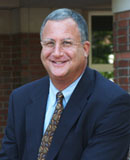 Rick Kaplan is currently executive producer of “The CBS Evening News with Katie Couric.” He was a broadcast journalist for more than 30 years. As president of CNN-US (1997–2000), he was responsible for all news and programming at the CNN News Group. Kaplan galvanized CNN’s ability to provide extensive and up-to-the-minute live coverage and analysis of both breaking and on-going news events. Kaplan joined ABC News in 1979 as a senior producer for “World News Tonight;” from 1979 to 1997, he was executive producer for a variety of ABC News and ABC television network programs, including “Good Morning America” news, “Nightline” (1984–89), “Primetime Live” (1989–94), “World News Tonight,” (1994), and, finally, ABC-TV Special Projects. Prior to joining ABC, Kaplan was a producer for “The CBS Evening News with Walter Cronkite.” He is the recipient of many awards, including 34 Emmy Awards, three Alfred I. duPont-Columbia University Awards, Overseas Press Club awards, and two George Polk awards. Kaplan was the visiting lecturer in the Lombard Chair at the Shorenstein Center in the spring of 2001.
Rick Kaplan is currently executive producer of “The CBS Evening News with Katie Couric.” He was a broadcast journalist for more than 30 years. As president of CNN-US (1997–2000), he was responsible for all news and programming at the CNN News Group. Kaplan galvanized CNN’s ability to provide extensive and up-to-the-minute live coverage and analysis of both breaking and on-going news events. Kaplan joined ABC News in 1979 as a senior producer for “World News Tonight;” from 1979 to 1997, he was executive producer for a variety of ABC News and ABC television network programs, including “Good Morning America” news, “Nightline” (1984–89), “Primetime Live” (1989–94), “World News Tonight,” (1994), and, finally, ABC-TV Special Projects. Prior to joining ABC, Kaplan was a producer for “The CBS Evening News with Walter Cronkite.” He is the recipient of many awards, including 34 Emmy Awards, three Alfred I. duPont-Columbia University Awards, Overseas Press Club awards, and two George Polk awards. Kaplan was the visiting lecturer in the Lombard Chair at the Shorenstein Center in the spring of 2001.
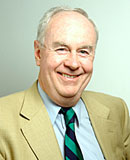 Paul Kelly is the editor-at-large of The Australian and was previously editor-in-chief of The Australian (1991–1996). He is a writer, historian and political analyst. After graduating from Sydney University, he worked in the Prime Minister’s Department in Canberra (1969–71) before transferring to journalism. He served as chief political correspondent and Canberra bureau chief for The Sydney Morning Herald and The Australian. Paul Kelly is the author of The Unmaking of Gough (1976), which later became The Dismissal (1982); The Hawke Ascendancy (1984); The End of Certainty (1992) on the politics and economics of Australia in the 1980s; November 1975; and, more recently, a collection of articles Paradise Divided (2000). The End of Certainty was described in The Times Literary Supplement as “the most comprehensive account of Australian polity since that of Sir Keith Hancock half a century ago.” He wrote and presented a 2001 five-part television documentary for the Australian Broadcasting Company on Australian history and character “100 Years — The Australian Story.” He has also released a book with the same title. Paul Kelly has written widely on international affairs in America, Europe and Asia, and has interviewed Margaret Thatcher, Lee Kuan Yew, Madeleine Albright, Tony Blair and Jiang Zemin. He is currently adjunct professor of journalism at the University of Queensland and is a participant in the Australia-America Leadership Dialogue. Mr. Kelly is also a visiting scholar at the Weatherhead Center for International Affairs. His research will focus on the role of race in Australia’s 2001 general election. Paper PDF
Paul Kelly is the editor-at-large of The Australian and was previously editor-in-chief of The Australian (1991–1996). He is a writer, historian and political analyst. After graduating from Sydney University, he worked in the Prime Minister’s Department in Canberra (1969–71) before transferring to journalism. He served as chief political correspondent and Canberra bureau chief for The Sydney Morning Herald and The Australian. Paul Kelly is the author of The Unmaking of Gough (1976), which later became The Dismissal (1982); The Hawke Ascendancy (1984); The End of Certainty (1992) on the politics and economics of Australia in the 1980s; November 1975; and, more recently, a collection of articles Paradise Divided (2000). The End of Certainty was described in The Times Literary Supplement as “the most comprehensive account of Australian polity since that of Sir Keith Hancock half a century ago.” He wrote and presented a 2001 five-part television documentary for the Australian Broadcasting Company on Australian history and character “100 Years — The Australian Story.” He has also released a book with the same title. Paul Kelly has written widely on international affairs in America, Europe and Asia, and has interviewed Margaret Thatcher, Lee Kuan Yew, Madeleine Albright, Tony Blair and Jiang Zemin. He is currently adjunct professor of journalism at the University of Queensland and is a participant in the Australia-America Leadership Dialogue. Mr. Kelly is also a visiting scholar at the Weatherhead Center for International Affairs. His research will focus on the role of race in Australia’s 2001 general election. Paper PDF
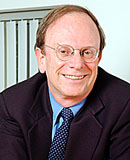 Matthew V. Storin was editor of The Boston Globe from 1993–2001. In a 36-year journalistic career, he also served as deputy managing editor of U.S. News & World Report from 1985–86, editor of The Chicago Sun-Times from 1986–87, editor of the Maine Times from 1988–89, and was managing editor and then executive editor of the Daily News in New York from 1989–1992. During his tenure as editor of the Globe, the paper won four Pulitzer Prizes. A native of Springfield, MA, he is a graduate of the University of Notre Dame (1964). He began his journalistic career as a reporter at The Springfield Daily News, joining the Griffin-Larrabee News Bureau in Washington, D.C. in 1965. Moving to the Globe in 1969, he covered Congress, the White House and was Asian bureau chief, covering the last stages of the war in Vietnam and Cambodia. He held a number of editing posts at the Globe before being named managing editor in 1982. Having left the Globe in 1985, he returned as executive editor in 1992, assuming the editor’s post in March 1993. He served as associate vice president for news and information at the University of Notre Dame where he now teaches courses in journalism and ethics. At the Shorenstein Center, his research will focus on post–September 11 U.S. coverage of anti-American sentiment. Paper PDF
Matthew V. Storin was editor of The Boston Globe from 1993–2001. In a 36-year journalistic career, he also served as deputy managing editor of U.S. News & World Report from 1985–86, editor of The Chicago Sun-Times from 1986–87, editor of the Maine Times from 1988–89, and was managing editor and then executive editor of the Daily News in New York from 1989–1992. During his tenure as editor of the Globe, the paper won four Pulitzer Prizes. A native of Springfield, MA, he is a graduate of the University of Notre Dame (1964). He began his journalistic career as a reporter at The Springfield Daily News, joining the Griffin-Larrabee News Bureau in Washington, D.C. in 1965. Moving to the Globe in 1969, he covered Congress, the White House and was Asian bureau chief, covering the last stages of the war in Vietnam and Cambodia. He held a number of editing posts at the Globe before being named managing editor in 1982. Having left the Globe in 1985, he returned as executive editor in 1992, assuming the editor’s post in March 1993. He served as associate vice president for news and information at the University of Notre Dame where he now teaches courses in journalism and ethics. At the Shorenstein Center, his research will focus on post–September 11 U.S. coverage of anti-American sentiment. Paper PDF
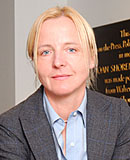 Ingrid Volkmer is associate professor at the University of Melbourne Australia and deputy director of the Media and Communications program. She has taught at universities in Germany (Bielefeld and Augsburg), Austria (University of Innsbruck) and was a faculty member at the New School University, New York, where she taught in the Media Management Program. Her major field of interest is global communication and its effects on cultures, societies and the “public sphere.” She has published numerous articles and books in Germany and the U.S. Among her publications is News in the Global Sphere: A Study of CNN and Its Impact on Global Communication (University of Luton Press, UK). Volkmer currently directs the international research consortium “Global Media Generations,” which analyzes news memories of three generations in twelve countries worldwide. Her research project will focus on the “Parameters of the Global Public Sphere: Topographies of News Memories Across Generations.” Paper PDF
Ingrid Volkmer is associate professor at the University of Melbourne Australia and deputy director of the Media and Communications program. She has taught at universities in Germany (Bielefeld and Augsburg), Austria (University of Innsbruck) and was a faculty member at the New School University, New York, where she taught in the Media Management Program. Her major field of interest is global communication and its effects on cultures, societies and the “public sphere.” She has published numerous articles and books in Germany and the U.S. Among her publications is News in the Global Sphere: A Study of CNN and Its Impact on Global Communication (University of Luton Press, UK). Volkmer currently directs the international research consortium “Global Media Generations,” which analyzes news memories of three generations in twelve countries worldwide. Her research project will focus on the “Parameters of the Global Public Sphere: Topographies of News Memories Across Generations.” Paper PDF
Spring 2002 Visiting Faculty
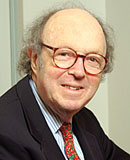 Anthony Lewis, Visiting Lombard Lecturer, was a columnist for the New York Times from 1969 to 2001. He won the Pulitzer Prize twice. From 1948–1952 he was a deskman in the Sunday Department of The Times. In 1952 he became a reporter for The Washington Daily News. In 1955 he won a Pulitzer Prize for national reporting for a series of articles in The News on the dismissal of a Navy employee as a security risk. In 1955 Mr. Lewis joined the Washington Bureau of The New York Times. From 1956–57 he was a Nieman Fellow. On his return to The Times in Washington, he covered the Supreme Court, the Justice Department and other legal matters, including the Government’s handling of the civil rights movement. He won a Pulitzer Prize for coverage of the Supreme Court in 1963. Lewis became chief of The Times‘s London bureau in 1964. He began writing his column from London in 1969. Since 1973 he has been located in Boston. He is the author of three books: Gideon’s Trumpet, about a landmark Supreme Court case; Portrait of a Decade, about the great changes in American race relations; and Make No Law: The Sullivan Case and the First Amendment. For fifteen years Mr. Lewis was a lecturer at the Harvard Law School, teaching a course on the Constitution and the Press. He has taught at a number of other universities, among them the universities of California, Illinois, Oregon and Arizona. Since 1983 he has held the James Madison Visiting Professorship at Columbia University. Lewis will teach a course at the Kennedy School entitled “The First Amendment: Legal Doctrine and Political Practice.”
Anthony Lewis, Visiting Lombard Lecturer, was a columnist for the New York Times from 1969 to 2001. He won the Pulitzer Prize twice. From 1948–1952 he was a deskman in the Sunday Department of The Times. In 1952 he became a reporter for The Washington Daily News. In 1955 he won a Pulitzer Prize for national reporting for a series of articles in The News on the dismissal of a Navy employee as a security risk. In 1955 Mr. Lewis joined the Washington Bureau of The New York Times. From 1956–57 he was a Nieman Fellow. On his return to The Times in Washington, he covered the Supreme Court, the Justice Department and other legal matters, including the Government’s handling of the civil rights movement. He won a Pulitzer Prize for coverage of the Supreme Court in 1963. Lewis became chief of The Times‘s London bureau in 1964. He began writing his column from London in 1969. Since 1973 he has been located in Boston. He is the author of three books: Gideon’s Trumpet, about a landmark Supreme Court case; Portrait of a Decade, about the great changes in American race relations; and Make No Law: The Sullivan Case and the First Amendment. For fifteen years Mr. Lewis was a lecturer at the Harvard Law School, teaching a course on the Constitution and the Press. He has taught at a number of other universities, among them the universities of California, Illinois, Oregon and Arizona. Since 1983 he has held the James Madison Visiting Professorship at Columbia University. Lewis will teach a course at the Kennedy School entitled “The First Amendment: Legal Doctrine and Political Practice.”

